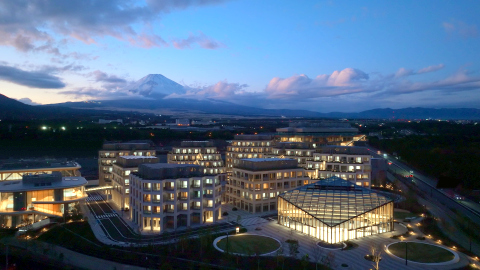This article may contain affiliate links.
[Ed. update: Althouggh some of the programs described in this article are no longer active, the ideas expressed and the intent of reducing unncessary travel and fuel consumption are still quite relevant.]
Whether you prefer to live in a thriving city or a quiet town, the right job can save you hundreds of commute hours and thousands of dollars. Working near where you live is good for your health and good for the environment. Better jobs are a reason that hundreds of millions have moved to cities. Cities are the headquarters for many service industries and government.

Manufacturing, energy and agricultural jobs are often located away from cities. Top employers in these fields establish comprehensive programs for commuters. More than 1,800 U.S. employers nationwide have joined the Environmental Protection Agency (EPA) and the U.S. Department of Transportation (DOT) Best Workplaces for Commuters, a program which offers telework best practices, subsidized transit, vanpool passes, and car pooling to more than 3 million employees. Recent EPA survey data show that when offered high-quality commuter benefits, employees are 20% more likely to ride together. Each year, awards are given for the 20 Best Workplaces for Commuters from the Fortune 500 Companies.
Nike Challenges Employees to Save
Nike has long sponsored friendly competition. TRAC is not a sponsored track meet; it is Nike sponsored competition for its employees to get to work without using gasoline or diesel. TRAC (Traveling Responsibly – Accept the Challenge) offers monthly prizes and incentives to employees at its world headquarters in the forested suburbs near Portland, Oregon. Nike encourages using public transportation by offering annual public transportation passes from TriMet for $20. Nike offers a shuttle system to public transportation and other Nike locations.
TRAC is staffed by a full-time employee transportation coordinator. The internal TRAC website offers tips and resources about public transportation, biking routes, and finding others for a carpool. Employees go to the TRAC website each week and post the alternative commutes they took for the week. 40 prizes are awarded monthly.
Since the program began in 1992, it has reduced the company’s average drive-alone rate from 98% to 84%. In fiscal year 2006, based on an average round trip of 17.8 miles, Nike employees saved approximately 719,343 vehicle miles traveled by using alternative commute modes. Employees saved 35,967 gallons of gasoline., according to a Greenbiz (now Trellis)Article.
Silicon Valley Promotes Remote, Flexible Work
Another winner was my former employer Sun Microsystems. Sun is famous for creating Java and “the network is the computer.” Sun effectively uses its own networking technology with an iWork program that enables employees to work at home, at an office near their home, or be highly productive anywhere with a mobile device and wireless network connection. At home, or at a convenient Sun office, employees swipe their smart security card and their entire work environment is displayed at the temporary workstation. Employees don’t worry about carrying laptops, gigabytes of disk, or boxes of paper files. But if you’re going to work from home though, it’s best to look into internet providers near me however so you can be sure that you’re going to have the best connection for your job.
Sun’s commute programs have eliminated more than 3,000 tons of CO2 emissions and have saved employees hundreds of thousands of hours that otherwise would have been wasted in bumper-to-bumper traffic. Sun employees also use SMART (Sun Microsystems Alternative Resources for Transportation) programs and services which give up-to-date commuter information, incentives for taking transit, biking and walking to work as well as shuttle rides to better utilize public transportation options near Sun campuses.
Moving people and goods impacts the bottom line of every business. The U.S. government estimates that congestion created from commuting to and from work causes 3.7 billion hours of lost productivity, costing employees 92 million work weeks, and the nation $63 billion in wasted time and fuel. People stuck in traffic breathe harmful emissions such as particulates that damage lungs, nitrous oxide and carbon monoxide. Health costs are potentially in the billions. Employers sometimes save millions in avoided cost for parking structures, as parking costs $600 to $2,400 per vehicle. Some employers pay more for parking structures than they pay for health care insurance programs. Part-time telework results in millions of added work hours that replace traffic gridlock hours. Rideshare gives employees a competitive edge in attracting and keeping good people.
